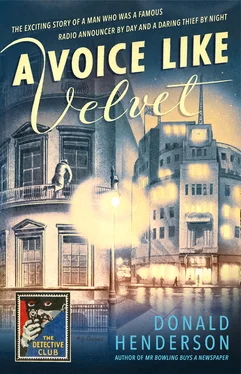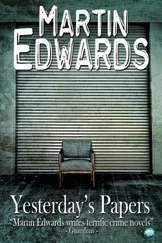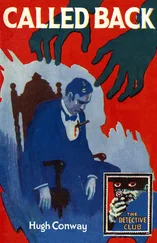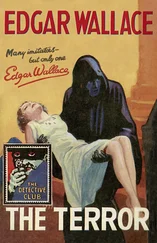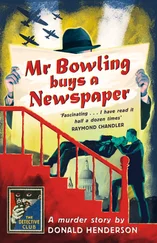A Voice Like Velvet wittily portrays everyday life at Broadcasting House. Before the Second World War, Henderson had spent years as an actor, as well as writing novels and plays, but success in all these fields proved elusive and he was often desperately short of cash. In his unpublished and incomplete memoir
The Brink , rescued from oblivion by Paul T. Harding in 2010, Henderson said: ‘I offered my services to the BBC, feeling that my experience as a writer might be of some use in wartime … Knowing little or nothing of the BBC until this date, I was a bit surprised … to be offered a technical job in no way suited to a writer … I was an assistant in a department … called the Recorded Programmes Department, and my duties were twofold; I had to put on gramophone records whenever told to do so, by day or by night—and I had to give “ten second cues”, in studios, when various programmes were to be recorded for transmission at later dates … The most restful of the transmissions I was called upon to do was undoubtedly The Morning Service, as this only involved one disc lasting the conventional three minutes. There was always a soothing hymn.’
Although Henderson resented the BBC’s bureaucracy, the salary compensated for the need to battle with red tape. After years of poverty and struggle, a steady job ‘meant marriage and starting a home at last … As I was getting on for forty, I got more money than much cleverer people, simply and solely because they were younger.’ It was while Henderson was at the BBC that Constable accepted Mr Bowling Buys a Newspaper , and this boosted his confidence. He proceeded to write a light comedy called A Man of Character , and then wrote this book.
In The Brink , he said: ‘By the time I was working on [ A Voice Like Velvet ] I had been appointed an “assistant” in the Home News Talks Department … Here I was in a splendid position to study “announcers”, for they would come into the News Room—an enormous, noisy place filled with erudite and striking literary personalities—a quarter of an hour or so before each news bulletin was due to be read to the waiting world.’
For Henderson, Broadcasting House had ‘none of the glamour or romance of the theatre. There seems to me to be a continual safety-first feeling in the air.’ So far as the BBC was concerned, he was an outsider. A rather different picture of life in Portland Place is presented in Death at Broadcasting House , published in 1934 by Val Gielgud and (under the pen-name Holt Marvell) Eric Maschwitz, both of whom were senior and experienced Corporation men. Their novel, an entertaining if relatively orthodox whodunit, proved highly successful and was filmed, with Gielgud himself playing one of the suspects.
Restless by nature, Henderson wasn’t suited to conventional working life. He moved to the Features & Drama Department, concentrating on the former rather than the latter. However, curiosity was apt to get the better of him. On one occasion, he was sent ‘to visit a factory on the outskirts of London where they were making Rose Hip Syrup, as well as extracting certain properties from the glands of animals. Both the rose hips and the glands appeared to be stacked overnight in a vast refrigerator thick with artificial snow. I was so absorbed by this that I stayed in it far too long and nearly caught pneumonia.’
As his personal finances improved, Henderson felt he could afford to resign from the BBC staff. However, he continued to work for the Corporation on a freelance basis, which ‘seemed more fitting for a writer, rather than continuing on the inside, posing as a producer’. He wrote occasional radio plays for the BBC, including The Trial of Lizzie Borden which, like several passing references in A Voice Like Velvet , illustrates his long-term interest in ‘true crime’. He shared this fascination with the detective novelist John Dickson Carr, who also worked for the BBC during the Second World War, and who encouraged Henderson to tackle the story of Borden, sensationally acquitted in 1892 of murdering her parents with an axe in Fall River, Massachusetts.
The Trial of Lizzie Borden was first broadcast in July 1945, and a Radio Times article publicising the play noted that Henderson had spent seven months working as a scriptwriter on Front Line Family , ‘the famous daily serial which BBC listeners overseas have been hearing throughout the war’. Paul Harding’s researches in the BBC archives reveal that on one occasion, Henderson was called upon to write a special episode at a few minutes’ notice. He completed the script within a couple of hours, earning praise from the BBC and an enhanced fee of twelve guineas. Front Line Family , later known as The Robinson Family , was the BBC’s first venture into soap opera—much to the consternation of those, like Val Gielgud, who feared that it would lead to creeping Americanisation of the Corporation’s output—and was a forerunner of Mrs Dale’s Diary and The Archers . Henderson’s predecessors as writers on the series included Alan Melville, who had published a handful of lively detective novels in the Thirties and later became a popular broadcaster, and Ted Willis, who went on to earn fame as the creator of Dixon of Dock Green , and ultimately received a life peerage. Like them, Henderson had a talent to entertain, but sadly enjoyed much worse fortune.
In 1945, Henderson discussed with Gielgud and Michael Sadleir the possibility of adapting Sadleir’s popular novel Fanny by Gaslight for radio, but the project fizzled out, as did a proposal to write a light-hearted radio thriller in six parts called The Haunted Wireless . He considered that ‘book writing is thoroughly odd’, but kept working on novels and also adapted Mr Bowling Buys a Newspaper for the stage. Tragically, he died of lung cancer when he was only 41 years old, at a time when his work was finally beginning to achieve recognition after years of setbacks. A Voice Like Velvet was, he said sadly, ‘perhaps the best reviewed of all my books, [but it] was only allowed one edition of three thousand copies.’ Among those who heaped praise on it in Britain was the influential critic James Agate, whose laudatory notice in the Daily Express was headed: ‘Ah, just the sort of book I like.’
Thanks to the Detective Story Club, this highly readable tale of a scoundrelly BBC presenter can finally enjoy the new lease of life it has merited for many years.
MARTIN EDWARDS
February 2018
www.martinedwardsbooks.com
MR ERNEST BISHAM kept as still as possible behind the green velvet curtains and listened to a clock ticking. Suddenly he slipped from behind the curtains and made for the door. He went unchallenged along a corridor and opened the first door he came to. Nobody was in it, it was a bedroom. He went to a window and softly opened it. A few minutes later he was hurrying along a side street and panting slightly. He was not so young as he had been, and he was not so slim as hitherto.
He couldn’t find a taxi, so he got a bus and reached Waterloo Station a little before eleven. Comfortably, he caught the eleven-five for Woking and sat in a first-class carriage, lighting a cigar, and knowing: ‘That porter recognized me again—he knows I’m Ernest Bisham, the Announcer!’ He still got a kick out of it, in spite of much recent mental research. Then he sat back and relaxed, thinking: ‘I promised myself I would never do it again. But I’ve failed myself again. It’s worse than smoking.’ He made a new promise to himself not to do it again, he really would get caught one day, and think of his position now! But he recognized that it meant giving up the biggest thrill of his life, not excluding that first time he had sat at the microphone and read: ‘And this is Ernest Bisham reading it.’ Deep in his overcoat pocket his fingers touched something hard.
Читать дальше
